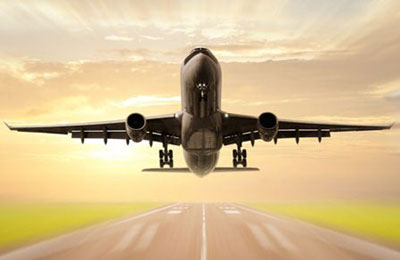
Europe urged to boost aviation competitiveness
Vienna, July 6, 2014
The International Air Transport Association (Iata) called on European governments and regulators to bolster European competitiveness with measures focusing on improved global connectivity.
The benefits of connectivity can only be fully realised if airlines, the core of the aviation value chain, are strong, said a statement.
Europe’s airlines are financially the weakest among the world’s major regions, as they are expected to realise a post-tax net profit of $2.8 billion this year, for an average net profit margin of just 1.3 per cent or just $3.23 per passenger, as compared to North American airlines which are expected to earn about $11.09 per passenger.
Tony Tyler, Iata’s director general and CEO, has urged Europe to continue to shore-up the foundation of its air transport sector – safety, security and sustainability – based on global standards.
He has also called on governments to address the competitive disadvantages they generate in the areas of taxation regulation.
“There is a very long list of things that Europe can and should do to improve the operating environment for its aviation sector. And the motivation for that is because aviation generates jobs and grows the economy through connectivity. A successful aviation sector improves European competitiveness” said Tyler, in a keynote address to a dialogue session among the European Union (EU), the European Civil Aviation Conference, and the European air transport industry taking place in Vienna.
“Among the biggest obstacles faced by European airlines are the competitive disadvantages placed in their way by Europe’s governments. The region’s airlines are over-taxed and onerously regulated. Moreover, they suffer from a chronically mismanaged air traffic management system, insufficient airport capacity and infrastructure costs that are simply too expensive. It’s time to do something about it,” he said.
Infrastructure
The priority list for infrastructure is topped by the Single European Sky (SES). Tyler has called for strong support for the SES2+ package to clear the way for rapid progress on this long-delayed project.
The package of measures has three vital elements including establishment of an independent economic regulator for European air navigation performance, re-organisation and unbundling of ATM support services and provision of an effective framework for functional airspace blocks (FABs) to deliver value.
“SES will reduce delays, cut emissions, raise safety levels and contribute to the creation of 320,000 jobs across Europe. It is critical for Europe’s future, but progress has been frustratingly slow and the costs are enormous. Consumers lose six billion euros ($8.1 billion) in time and productivity on top of which is the three billion euros burden on operations and 7.8 million tonnes of unnecessary carbon emissions. The leadership of individual states is needed to turn Europe’s air navigation service monopolies into customer-focused and cost-effective members of the air transport value chain,” said Tyler.
Airports
Iata called for European policy-makers to take urgent actions to avoid a predicted airport capacity shortfall which is expected to reach 12 per cent by 2035 according to Eurocontrol.
“As a basic principle, we believe that airports need effective economic regulation to achieve three goals starting with providing protection from excessive charges. Regulation must also incentivise efficiency gains and drive service quality levels. Finally, it should aim to maximise the value of investments by aligning with customer needs through true and transparent consultation processes,” said Tyler.
Taxation
“In 2014, the European governments will collect nearly $40 billion in taxes from airlines and passengers. To put that into perspective, that is more than double the taxes collected in the Asia-Pacific region. Many governments there value aviation more for the long-term economic value that the industry makes possible, than for short-term tax receipts,” said Tyler.
Some European governments are beginning to understand the economic damage that excessive taxation on connectivity can do.
Regulation
Excessive or misguided regulation has weighed down Europe’s air transport industry, said a statement.
“Experience teaches that we achieve the best results on regulation when governments focus on real, not imagined, problems and take full advantage of expert advice and consultation. It is also important to calibrate regulation and taxation carefully to promote global connectivity and ensure that the costs imposed by regulation do not exceed its benefits. Finally, regulation should respect global standards wherever they exist,” said Tyler.
The work that the International Civil Aviation Organization is doing to develop core principles on consumer protection should be reflected in the EU’s review of Regulation 261, he added. - TradeArabia News Service







